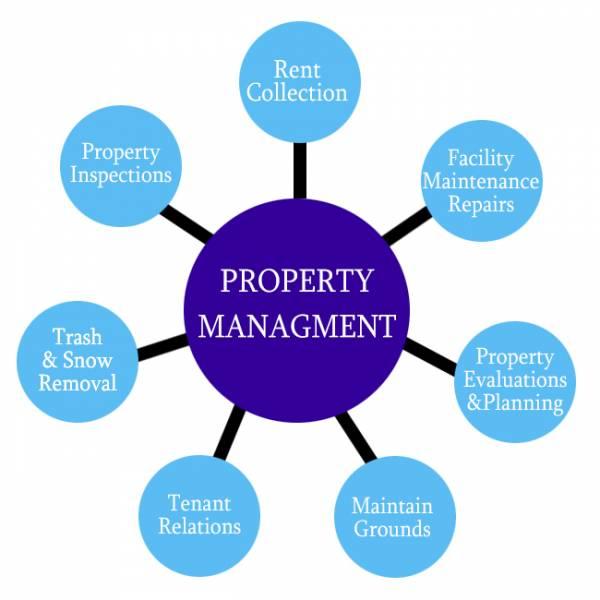From Leasing to Inspections: The Comprehensive Function of Property Management in Guaranteeing a Smooth and Problem-free Rental Experience
In the realm of building monitoring, the process extends far past the simple act of renting a residential or commercial property to an occupant. From precise occupant testing and choice to positive upkeep coordination and prompt examinations, the duty of residential or commercial property monitoring is important and multifaceted in growing a smooth and trouble-free rental experience for both lessees and property managers alike.

Lessee Screening and Selection
Effective tenant screening and choice is crucial for preserving a successful and unified rental home. By carrying out detailed screening processes, residential property supervisors can reduce risks and make certain a positive rental experience for both renters and proprietors.
Along with background checks, validating recommendations from previous property owners or companies can use important understandings into a lessee's behavior and reliability. Residential property supervisors should also follow fair housing legislations to stop discrimination based upon variables such as race, sex, religion, or disability. Clear interaction of rental criteria and expectations upfront can aid attract ideal occupants that align with the residential or commercial property's criteria.
Ultimately, a thorough renter testing process establishes the foundation for a successful occupancy, reducing the possibility of problems, late payments, or residential or commercial property damage. OKC Property Management. Residential or commercial property supervisors play a critical duty in supporting these requirements to produce a desirable and secure living atmosphere for all events included
Lease Collection and Financial Administration
Keeping a effective and unified rental home extends past lessee testing and selection, as the efficient handling of rental fee collection and financial monitoring is vital for making sure the property's economic security and total functional effectiveness. Residential property supervisors must establish clear lease repayment policies, consisting of acceptable repayment techniques and due dates, to keep a steady money flow for residential or commercial property costs and proprietor circulations. On the whole, thorough rental fee collection and monetary management practices are important for building managers to maintain the residential property's monetary health and offer a smooth rental experience for both property owners and tenants.
Maintenance Sychronisation and Repairs
Guaranteeing timely and efficient maintenance sychronisation and repair work is essential for protecting the residential or commercial property's worth and guaranteeing renter contentment. Residential or commercial property supervisors play a vital function in supervising maintenance jobs, responding immediately to fix requests, and collaborating with reputable specialists to attend to any kind of concerns that develop. By quickly addressing upkeep problems, building supervisors can prevent small problems from escalating into larger, costlier concerns, eventually saving both the homeowner and the renter money and time.
Effective upkeep sychronisation includes establishing clear interaction channels with occupants to report issues and scheduling routine residential or commercial property evaluations to recognize potential maintenance needs proactively (Homes directory for rent OKC). Property managers have to also preserve a network of relied on vendors and professionals to ensure high quality fixings and affordable prices. Additionally, keeping in-depth records of maintenance history and costs is vital for budgeting and tracking the building's general maintenance needs in time
Lease Enforcement and Conformity

Lease enforcement involves keeping track of renter activities to guarantee they adhere to the agreed-upon terms, such as paying lease promptly, keeping the property in good condition, and respecting noise regulations. Home supervisors should address any lease violations quickly and in conformity with the regulation to preserve a fair and organized rental setting. In addition, staying informed regarding pertinent landlord-tenant laws and guidelines is important for efficient lease enforcement and conformity. By proactively attending to lease offenses and promoting open communication with tenants, property managers can assist create a positive rental experience for all celebrations involved.
Communication and Problem Resolution
Efficient interaction plays a pivotal duty in resolving potential conflicts and keeping a favorable landlord-tenant relationship within residential property management. Open and clear lines of communication between home managers and lessees can assist avoid misunderstandings that often bring about conflicts. Routine updates on home upkeep timetables, lease suggestions, and any type of changes in plans are vital to ensure transparency and depend on.
In cases where problems do develop, punctual and effective resolution is vital to maintaining the harmony of the rental contract. Building supervisors ought to establish methods for dispute resolution, providing occupants with a clear process for dealing with concerns or complaints. By proactively paying attention my sources to occupant feedback and collaborating to More hints find equally valuable services, residential or commercial property supervisors can stop minor problems from intensifying into significant conflicts.
Additionally, cultivating a society of respect and understanding can considerably decrease the chance of conflicts. Urging open communication, establishing clear assumptions, and being responsive to tenant queries can aid develop a favorable rental experience for all parties involved. Ultimately, positive interaction and problem resolution methods are important elements of effective building management.
Conclusion
In summary, property management plays a crucial duty in assisting in a seamless rental experience by overseeing tenant testing, rent out collection, upkeep control, lease enforcement, and interaction. By applying reliable approaches in these key areas, home supervisors can make certain a convenient process for both renters and proprietors. Their extensive strategy aids to maintain residential or commercial property values, support lawful responsibilities, and advertise positive landlord-tenant connections.
In the world of residential or commercial property administration, the procedure expands far beyond the mere act of leasing a building to a tenant.Keeping a effective and harmonious rental building extends past renter screening and option, as the efficient handling of rental fee collection and financial administration is crucial for making certain the residential property's monetary stability and general functional effectiveness. Home managers should develop clear rent settlement plans, consisting of appropriate payment approaches and due dates, to maintain a stable cash money flow for home expenditures and proprietor distributions. Generally, persistent rental fee collection and economic administration techniques are essential for property supervisors to maintain the home's monetary health and supply a smooth rental experience for both occupants and property managers.
By promptly attending to upkeep worries, building managers can stop small problems from escalating right into bigger, costlier issues, ultimately conserving both the building proprietor and the tenant time and money.